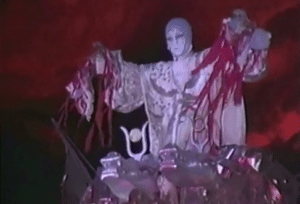Euripides’ Medea and the critique of ideology
Euripides’ Medea was performed for the first time in 431BC at the theatre of Dionysus in Athens. Although not particularly successful in its first production, today it is one of the best known and most frequently produced ancient plays. Medea has captured the audiences’ imagination for centuries because it features one of the most shocking crimes in human societies: the murder of children by their own mother.
What are we to make of this horrific act, and especially of the fact that Medea escapes unpunished, and seemingly without remorse, on the dragon-drawn chariot of her grandfather Helios?
Since the fifth century BC, playwrights, scholars, directors and composers have given different meanings to this horrific act and to the play’s perplexing ending. Thankfully, we are not anymore in the era where the barbarity of the act would be bluntly attributed to Medea’s foreign identity. In his introduction to the 1938 edition of the play (p. xxi), the otherwise formidable scholar Sir Denys Page wrote “Because she was a foreigner she would kill her children”. And he continued elsewhere: “It is important to understand that the poet has described not a Greek woman, but a barbarian. Though her emotions are natural to all women of all times in her position, their expression and the dreadful end to which they lead are everywhere affected by her foreign origin”.
This is a shockingly simplistic interpretation by the modern scholar, even for an era that post-colonialist studies were still in their infancy. The play’s discourse about the foreign element is anything but this simple: for example, Medea’s very first words when she appears on stage ring devastatingly true of many societies’ hostile attitude towards the foreign element out of mere ignorance and prejudice:
For there’s no justice in the eyes of humankind— before they clearly learn the insides of a man, they loathe on sight, although they’ve suffered no injustice. (Medea 219-21, tr. R. Blondell)
Medea’s sharp description and critique of societies’ prejudice against the foreign element offers a fruitful way to start the exploration of the play; it shows what a devastatingly transformative effect ideologies can have on humans, giving rise to unjustified hatred and cruel marginalisation, and even making societies operate against their own fundamental values. Medea’s critique in these lines concerns attitudes dictated by ethnic ideology; but throughout the play, other varieties of ideology, especially gender ideology and the ideology of heroic identity, receive sharp reflection and criticism. Even more so, they become directly linked to the murder of the children at the end. In other words, as I will argue, what we are shown through this horrific act is how incompatible such extreme ideologies are with the fundamental values of close human relationships (the ancient Greek philia relationships), even familial relationships, and the protection of innocent life. It is these ideologies, with their inherent contradictions and extreme nature, rather than anything else, that drive the dramatic action to the horrific ending of the children’s murder.
Despite what Page (and other scholars) have written, Medea is not portrayed as non-conforming with Greek ideology; if anything, at the very beginning of the play she is portrayed as having conformed almost fully with the gender ideology that concerns Greek women. She is a model wife, above all having given her husband a stable household and male sons for the continuation of his family-line. She has also experienced in full the Greek institution of marriage and all its hardships, as the heroine poignantly says soon after, in one of the most devastating critiques of ideology that dictates the role of Greek women within the institution of marriage:
Of all those beings capable of life and thought,
we women are most miserable of living things.
First, we must buy ourselves a husband, at great cost,
and thus acquire a master over our own bodies—
a second evil still more grievous than the first.
The greatest ordeal here is whether we will get
a worthwhile or a bad one; for departure harms
a woman’s reputation, and she can’t refuse
a husband. Then she comes to new customs and ways,
and must divine prophetically—not having learned
at home—what kind of bed-mate she’ll be dealing with.
If we succeed in working all this out, and if
our husband bears in peace the yoke of living with us,
our life is enviable; if not, we must die.
But when a man is burdened by the company
within, he goes outside to ease his heart’s distress.
We, by necessity, must look to one alone.
They say there is no danger in the life we lead,
staying at home while they do battle with the spear.
How wrongheaded they are! I’d rather stand three times
behind a shield in war than give birth to one child!
(Medea 230-51, tr. R. Blondell)
Granted, Medea may have not literally gone through the process of marriage that Greek women did (see fig. 1) when she came with her husband in Greece.

However, the large spatial metaphor of Medea’s journey from the Black Sea to Greece strikingly mirrors this process of the bride’s separation and abandonment of her family, and captures the fact that Medea’s current state embodies the most nightmarish version of what marriage could be for a Greek woman: having abandoned her home and her family with no possibility of going back, she finds herself all alone, isolated in a context hostile to her foreignness. She is, as she herself says, an unknown quantity in her new home, with loads of prejudices oppressing her – including her reputation for being wise; and like the desperate Greek wives she describes in the monologue above, she has no one to turn to and is left to look to Jason alone – even when he is ready to give her and their children up in order to secure a better status for himself.
On the other hand, Jason, even with his totally unflattering characterisation in the play, is not completely unlike Medea in that he himself is also subjected to society’s oppressive ideologies and expectations. His motivation for breaking his oaths to Medea, abandoning her and their children for a royal marriage with the Corinthian king’s daughter, largely stem out of the fact that he is state-less and status-less. Jason is an exile in Corinth, so, like Medea, he is essentially a foreigner. The status of his children is also unfortunate: when he justifies his actions to Medea, he suggests that as sons of a foreign mother, they can acquire status only if they have brothers of a royal bloodline. For an Athenian audience, and in light of recent changes to the Athenian family law, Medea’s foreign ethnicity would also mean that Jason’s children would not be considered legitimate. In other words, Jason could be thought of as not really having heirs to continue his family line. Although the world of Medea and Jason is not that of fifth-century Athens, the words and actions of the characters suggest that the social and ideological context that shapes them and motivates their actions – and that is being critiqued so sharply – evokes the context of fifth-century Athens. It is this oppressive framework of society’s expectations that largely transforms the two spouses into the inhumane characters they become.
That ideology and its critique is the focus of Euripides’ Medea is also suggested by how obsessively – and disturbingly – the play engages with heroic ideology. In the play, the image of the hero is not conveyed by Jason; on the contrary, Jason’s heroic credentials seem to be compromised from the start, especially as Medea is essentially shown to have achieved the heroic feat of the Golden Fleece. What Jason has done is to violate the Greek ethical norms of trust and honesty in his treatment of his family. With Jason’s heroic image shattered, it is Medea who disconcertingly becomes obsessed with heroic ideology. It is almost as if, once the heroine has so sharply exposed and rejected the pathetic role of women in her place, she has no other identity, no other framework to turn to, so she starts transforming into something that chillingly evokes a hero – in all the ambiguity we encounter heroes elsewhere in Greek literature, heroes like the Homeric Achilles, the Sophoclean Ajax, or the Euripidean Heracles.
The most disturbing element of Medea’s behaviour, which, I believe, ultimately aims at critique of heroic ideology, is how frequently Medea obsesses with her heroic honour and shows concern about being ‘laughed at’:
Now it is a contest of courage. Do you see what is being done to you? You must not suffer mockery… (Medea 403-5)
Once Medea undertakes the paradoxical feat of achieving heroic glory and fame – by killing her children, of all things – she becomes a creature we can hardly relate to: a pathetic figure who almost schizophrenically struggles between her intense maternal love for her innocent boys and her self-imposed heroic expectations. Most chillingly of all, in her final disconcerting monologue, where Medea struggles with her decision to murder the children and constantly changes her mind, what finally tips the balance and brings about the devastating finale is Medea’s concern with heroic honour:
I’ll live bereft of you
the rest of my poor life—a life of grief and pain.
And you, you’ll no more look upon your mother with
those dear eyes, after leaving for a different kind of life.
[She gives a cry of lamentation.]
My sons, why are you gazing at me with
those eyes? Why smile at me this final laughing smile?
[She screams in anguish.]
Aiai! What shall I do? Women, my heart for this
deed disappears when I catch sight of my sons’ shining
eyes. I cannot do it! Farewell to the plans I made before!
I’ll take my sons away from here.
Why should I do this evil to them, just to bring
their father pain, when doing so will gain me twice
the evil for myself? I won’t! Farewell, my plans!
But what’s come over me? Do I want to incur
laughter for leaving enemies unpunished? No!
This must be dared. What cowardice it was in me,
to let those soft words even come into my mind!
Be gone, my sons, into the house. If anyone
is not permitted to attend my sacrifice,
that is his own concern. I won’t let this hand fail!
(Medea 1036-55, tr. R. Blondell)
Under multiple pressures, in front of our eyes Medea transforms into a creature that we can no longer place anywhere in our experience: a disconcerting mixture of an intensely loving mother and an honour-obsessed hero that destroys innocent life.

Several modern productions, such as the one by Y. Ninagawa shown in fig. 2 have turned the character of Medea in this final, shocking scene into a physically unrelatable creature: standing on Helios’ chariot, she is portrayed as neither human nor divine, neither male nor female. This is what the dramaturgy of the play itself suggests: Medea is anything but human at this point; she is an outlandish creature of nightmares, a Fury, an entity that destroys innocent lives to restore injustice:
Oh god-born light, prevent her! Stop her!
Take from the house this wretch, this Fury,
bold, bloody and inspired by demons of revenge.
(Medea 1258-60, tr. R. Blondell)
How are we to make sense of the final scene of Euripides’ Medea? Perhaps the utter horror and shock of the scene does only not concern characters, personalities and domestic conflicts. We of course abhor Medea’s inhumane act; but in my view, the horror of this scene captures above all the failure of human societies, despite, or perhaps because of, their ideological structures – structures often rigid, tyrannical and self-contradictory – to protect the value of human life and the cornerstone of human relationships: that of parents and children.
